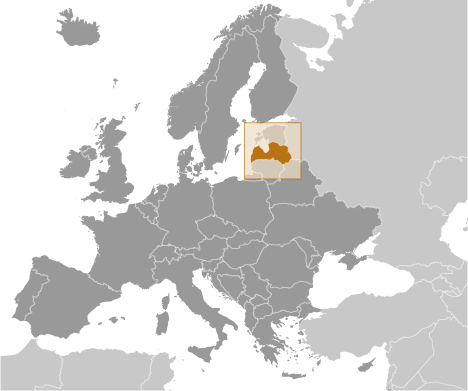HISTORICAL BACKGROUND
The Constitution of Latvia states:
Article 100. Everyone has the right to freedom of expression which includes the right to freely receive, keep and distribute information and to express their views. Censorship is prohibited. Article 104. Everyone has the right to address submissions to State or local government institutions and to receive a materially responsive reply. Article 115. The State shall protect the right of everyone to live in a benevolent environment by providing information about environmental conditions and by promoting the preservation and improvement of the environment.(1)
The Law on Freedom of Information was signed into law by the State President in November 1998 and has been amended a number of times recently.(2) Any person can ask for ask for information in "any technically feasible form" without having to show a reason. The request can be oral or written. Bodies must respond in 15 days.
The law creates two categories of information - "generally accessible" and "restricted". Information can only be limited if it is intended for a limited group of people and the disclosure would hinder the work of the institution or harm a person's legitimate interest. To be restricted, it must be restricted by another law, for internal use of an institution, a trade secret not relating to public procurements, about the private life of an individual, concerns certification, examination, project, tender and similar evaluation procedures, or relates to state security but not a state secret.
There is a right of internal appeal to the head of the institution or a higher authority. The State Data Inspectorate was given oversight authority starting in January 2004.(3) Between 10 to 20 percent of its complaints have been related to FOI cases. It also has conducted some educational activities and given advice but its activities have been limited of a lack of additional funding.
Appeals can also be made to a court. The Constitutional Court ruled in 1999 that a regulation issued by the Cabinet of Ministers restricting access to budget information was void because it violated the FOI Act.(4) The Administrative Court ruled in January 2005 that the Prosecutors General's office is subject to access requests.
The law was amended in December 2005 to implement the EU Directive on the re-use and commercial exploitation of public sector information (2003/98/EC)(5) and the EU Environmental Information Directive (2003/4/EC). The amendments have made some substantive improvements to the workings of the law. The right of access was further clarified and strengthened. The duration for restricted information was limited to one year, subject to renewals. It also required institutions to create information registers and make those available on the body's website and allowed requesters to obtain information in the format of their choice. New regulations are currently being developed to implement the revised act, including on fees. There are currently efforts to amend the law to limit the scope of the exemption for NATO-related information.
Implementation has improved somewhat but there are still problems. Early surveys found a serious lack of resources and training.(6) The GRECO Evaluation team in 2004 recommended that "measures be taken to enhance easier access to public information, above all at local level."(7) The situation has gotten better due to a new law on administrative procedure which improved decisions and appeals, government commitments to improve anti-corruption mechanisms, and pressure from civil society, journalists, court cases and international organizations. The amendments are expected to improve practices by limiting the discretion of officials to withhold information but the right of information is still not considered strong enough by civil society groups.
The State Secrets Act sets rules on levels the protection of classified information. It was adopted in 1996 and amended in 2001.(8) It is overseen by the Constitutional Protection Bureau. The Constitutional Court ruled in 2003 upholding the regulations on security clearances.(9)
The Centre for the Documentation of the Consequences of Totalitarianism was placed in charge of the files of the former KGB that were not destroyed or taken back to Moscow in 1991. The records include 5,000 index cards of informers.(10) The Center was moved in November 2002 to become part of the Constitutional Protection Bureau.(11) The Parliament voted overwhelmingly in May 2004 to release thousands of KBG files but the President refused to approve it. The Parliament's approved a revised bill in June 2006 to publish information on KGB agents in the official newspaper following the October 2006 election.
The Law on Personal Data Protection allows individuals to obtain and correct their own records held by public or private bodies.(12) It is overseen by the State Data Protection Inspectorate.
The Law on Archives provides for open access to files held by the state archives after 10 years for most records.(13)
The Law on Environmental Protection requires authorities to publish information relating to environmental matters and authorizes citizens to demand information from agencies.(14) Latvia signed the Aarhus Convention in 1998 and ratified it in 2002. It signed the Protocol on Pollutant Release and Transfer Registers in 2003.
2004 freedominfo.org Global Survey Results - Latvia
NOTES
Constitution of Latvia 1998. http://www.oefre.unibe.ch/law/icl/lg00000_.html
Law on Freedom of Information, Adopted 29 October 1998, Signed 6 November 1998. http://www.nobribes.org/Documents/Latvia_FOILaw.doc (not current version)
Homepage: http://www.dvi.gov.lv/eng
Decision in Case 04-02(99), 6 July 1999.
Act of 22 December 2005. Signed by President on 3 January 2005. In effect 1 February 2006.
See Delna, A Survey of Access to Information in Latvia, 2002. http://www.delna.lv/
Second Evaluation Round - Evaluation Report on Latvia Greco Eval II Rep (2004) 4E. 2 July 2004.
Law on State Secrets. Published in "Vestnesis" 181, 29 October 1996.
Constitutional Court of Latvia, Judgment in case No. 2002-20-0103, 23 April 2003. http://www.satv.tiesa.gov.lv/Eng/Spriedumi/20-0103(02).htm
Latvia Debates Putting Cards On The Table, Wall Street Journal Europe, 1 November 1999.
Law on preserving and application of the documents of former KGB and establishment of the fact of cooperation with former KGB, 17 November 2003.
Personal Data Protection Law 2000. http://www.dvi.gov.lv/eng/legislation/pdp/
Law on Archives, March 26, 1991 Amended: 21 October 1993. http://www.arhivi.lv/engl/eng-lvas-law-on-arch.html
Law on Environmental Protection, 22 May 1997, amended 20 June 2000. http://www.ttc.lv/New/lv/tulkojumi/E0042.doc





















